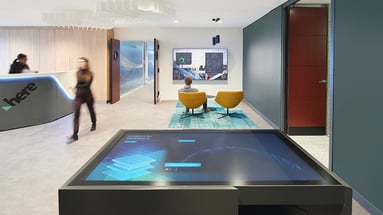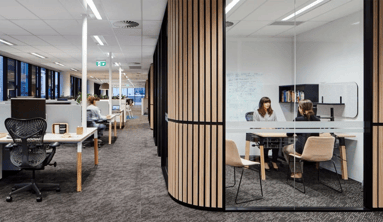As the legal industry adapts to the rise of hybrid work environments, their work environments must change to engage and retain employees.
Hybrid work has proven notably successful in the legal industry. With the focus-oriented nature of their work, attorneys have embraced the benefits of working from home, but they are still willing to go into an office that enables productivity and connection.
Finding the balance: Private offices vs remote freedom
Private offices have traditionally been a defining feature of the legal workspace, but the rise of remote work brings a new archetype into question. Leaders must navigate the delicate trade-offs surrounding dedicated office spaces. For more established professionals, the office is a symbol of tradition and status. But newer top recruits, particularly women and minorities, want more flexibility and technology that facilitates smooth collaboration and communication from anywhere.
To support different work modes, preferences, and values, legal office design must consider how to configure spaces to meet the needs of a multi-generational workforce. This means creating a balanced environment that caters to individual needs while encouraging growth, equity, and success.
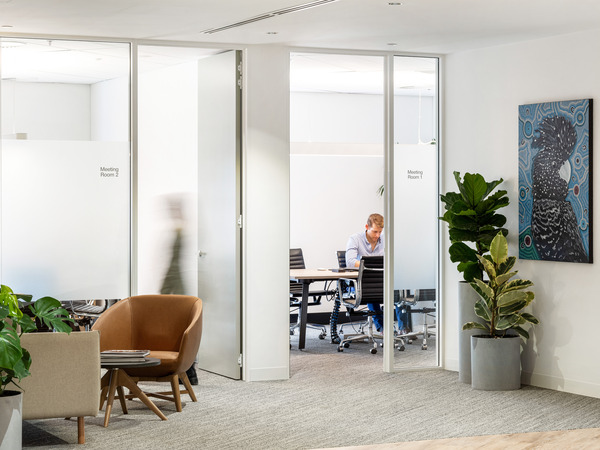
At Barry Nilsson’s Sydney office, open work areas, focus rooms, quiet spaces, and collaborative meeting rooms allow employees to choose their preferred work environment.
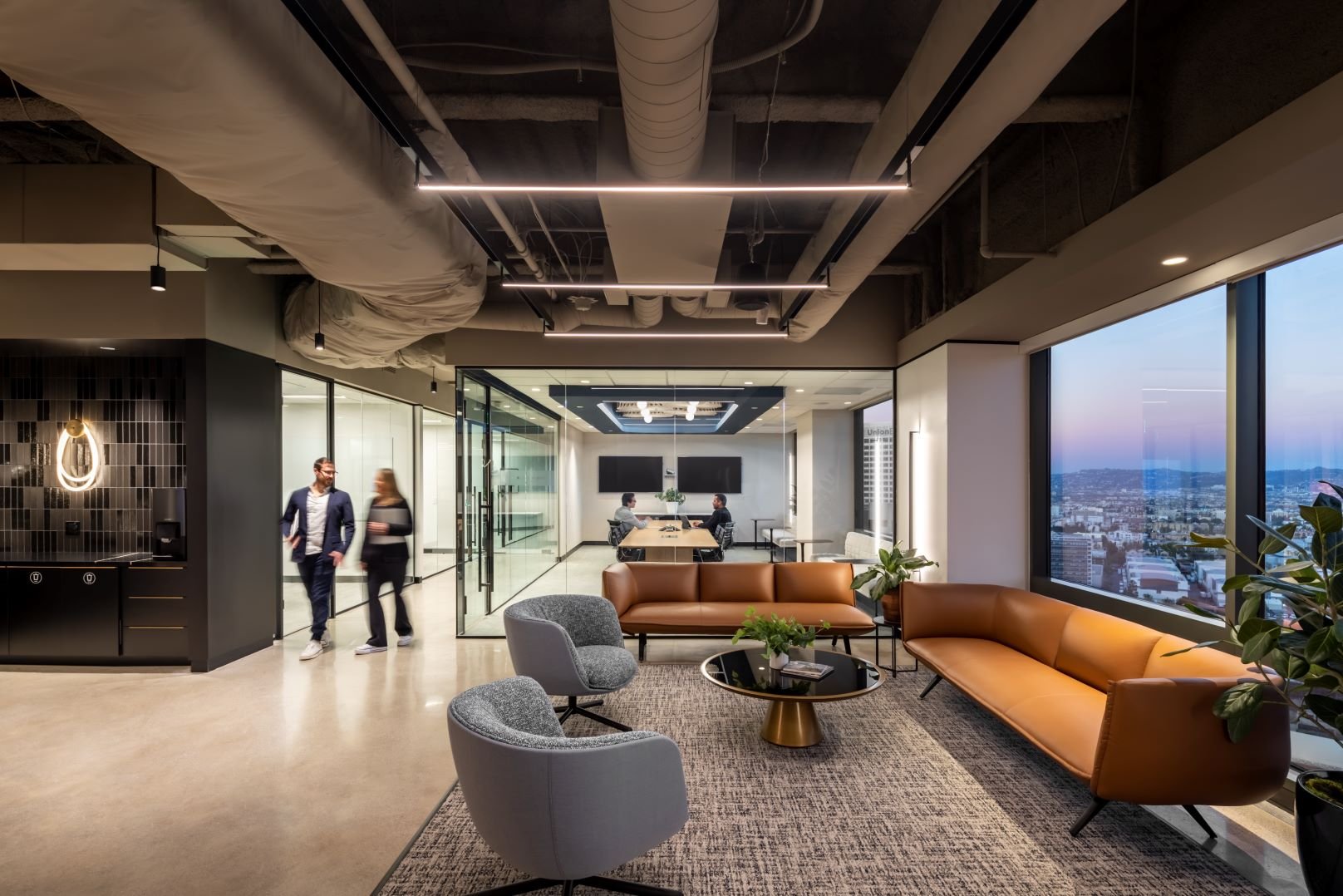
Orrick’s Los Angeles office gives staff the technology and spaces they need to thrive in a hybrid environment.

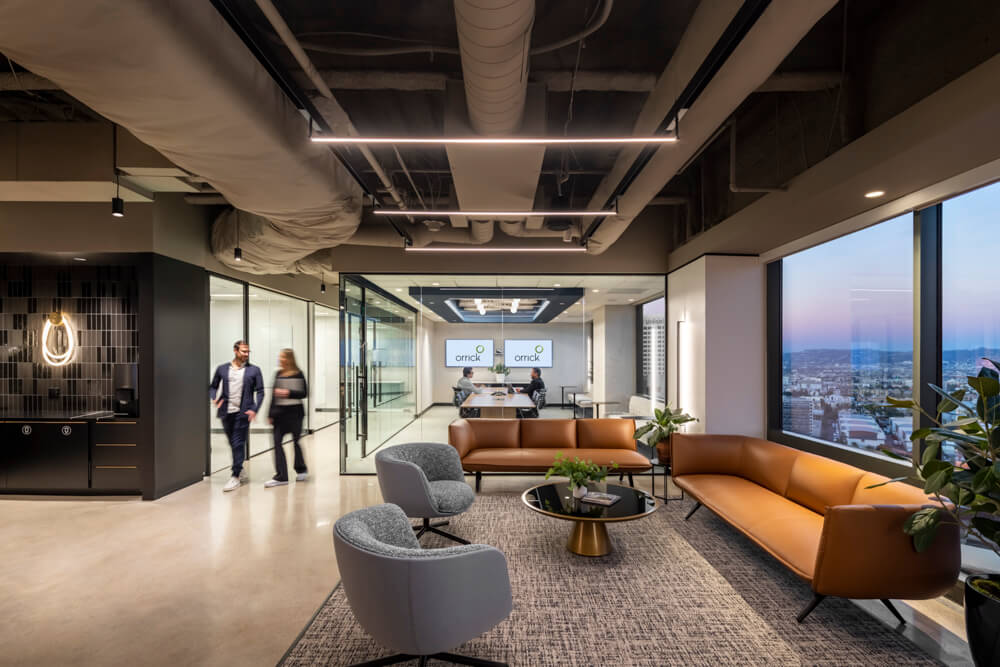
Orrick’s Los Angeles office gives staff the technology and spaces they need to thrive in a hybrid environment.
Updating technology: Integrating high-performance solutions
of employers offer advanced technology like virtual conferencing – among the lowest globally across industries
For law offices to execute a successful hybrid strategy, integrating updated technology is critical. As attorneys and staff navigate between home and office, the importance of cutting-edge communication and collaboration tools cannot be overstated.
Our Global Workplace Insights research revealed that more than 1 in 5 legal industry employees said their office needed better technology. This aligns with findings from the same report, which found that only 16% of employers reported providing advanced technology such as virtual conferencing.
To meet the needs of their workforce, law offices must embrace the strengths of remote work while enhancing traditional office spaces with connective technology. It requires a mindset shift towards a tech-forward work culture, leveraging advanced technologies, meeting tools and resources to create virtual experiences that transcend physical boundaries and empower legal teams to stay connected and productive, regardless of their location.
of employees would be happier to spend more time in the office if there were separate workspaces for collaborative and quiet work
Rethinking space allocation: Fostering connectivity and focus
In the fast-paced legal landscape, the legal office must address the complex demands of collaboration and individual productivity. Our research found that 42% of legal employees expressed a desire to spend more time in the office if there were separate spaces for collaborative work and quiet concentration.
The presence of noise and interruptions can significantly disrupt critical case work, emphasizing the need for dedicated quiet zones alongside dynamic, collaborative areas. Well-designed concentration spaces are vital, giving individuals the workspace they need for uninterrupted focus work and ultimately fostering high performance.
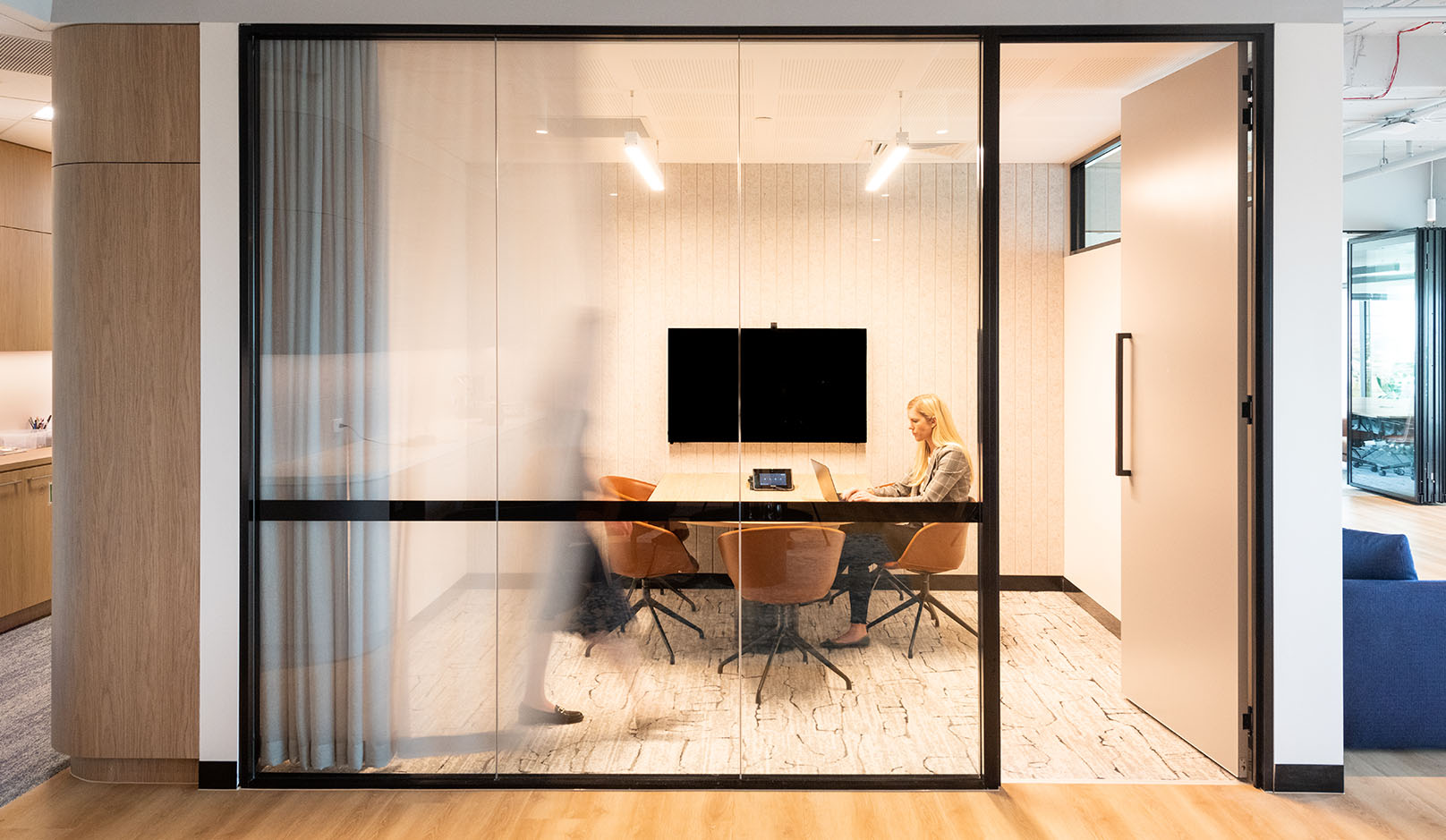
The dedicated quiet space at FB Rice enables employees to work with teams or individually on focus work.
Embracing the future: Creating inclusive and empowering environments
Generational values and expectations in the workplace play a crucial role in shaping the future of the legal workspace. Finding the right balance between traditional legal offices with hybrid work preferences, technological advancements, and an evolving workforce are critical to creating spaces that resonate with a diverse employee base.
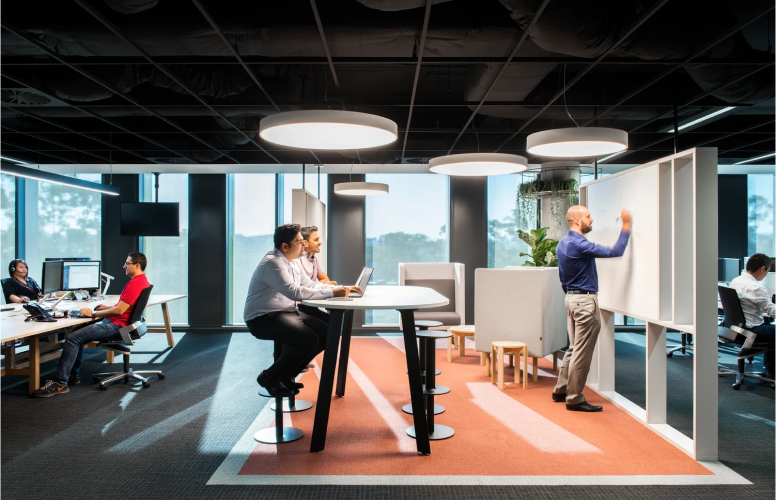
Unassigned workspaces and dedicated focus and collaborative zones create a hub for interactive innovation at Herbert Smith Freehills.
Cultivating an inclusive and authentic workplace that prioritizes wellbeing, connection, flexibility will position law firms for long-term success.
